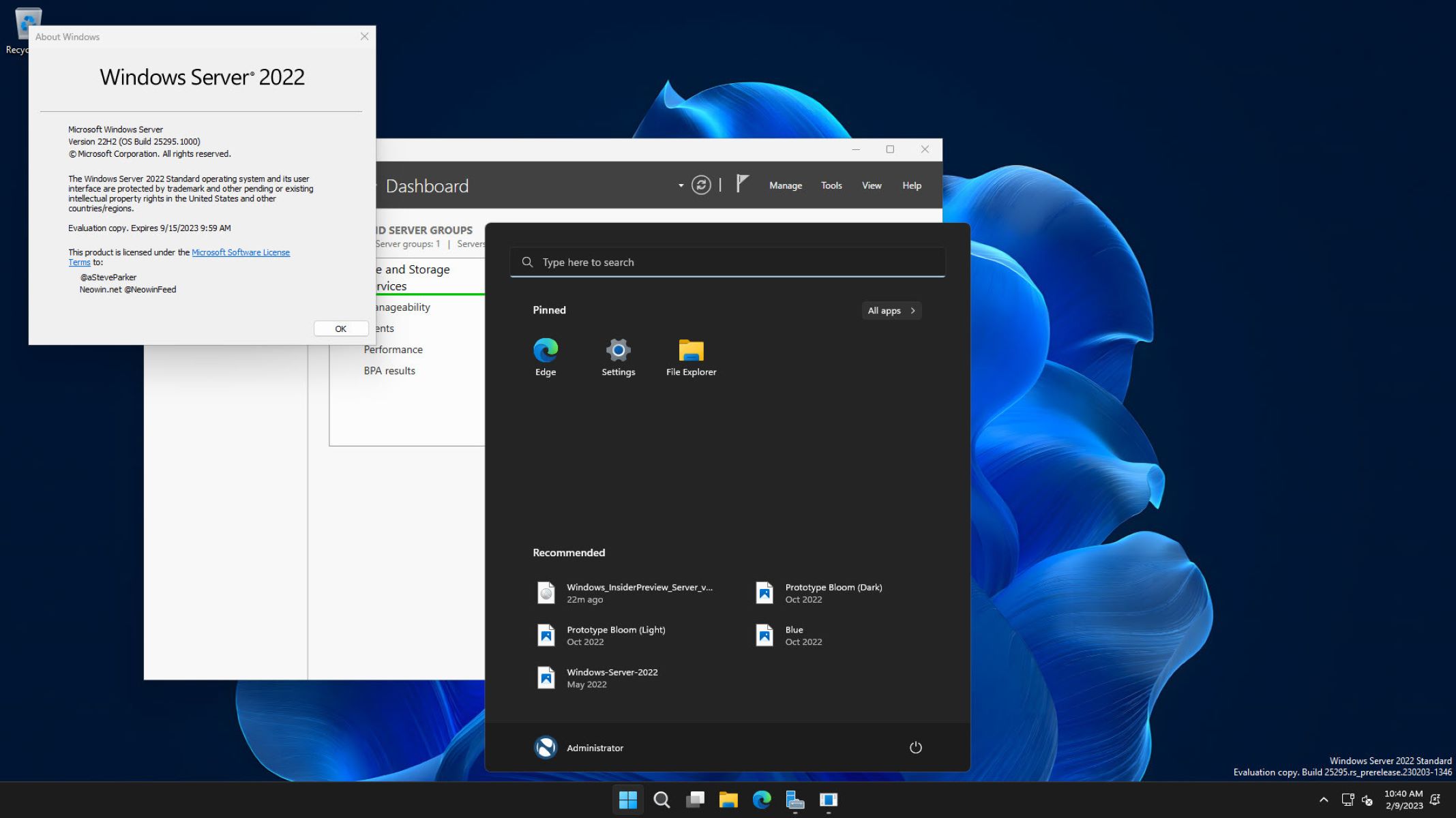Introduction
Web hosting services play a crucial role in the online world, powering countless websites and online businesses. As the demand for websites continues to grow, so does the need for reliable and high-quality web hosting providers. This presents an exciting opportunity for individuals or businesses to enter the lucrative market of reselling web hosting services.
Reselling web hosting services allows you to capitalize on the growing demand for hosting while avoiding the costs and complexities of building and maintaining your own infrastructure. It is an increasingly popular business model that offers a flexible and profitable way to earn income in the online industry.
In this article, we will explore the benefits of reselling web hosting services and provide you with step-by-step guidance on how to get started. Whether you are an aspiring entrepreneur or a web designer looking to expand your service offerings, reselling web hosting services can open doors to new possibilities.
By becoming a web hosting reseller, you can leverage the infrastructure and expertise of established hosting providers, offering your clients reliable hosting solutions and excellent customer support. This allows you to focus on building and growing your business, without the need for technical expertise or substantial upfront investment.
Throughout this article, we will discuss the key steps to resell web hosting services, including choosing a web hosting provider, setting up your reseller account, customizing your hosting plans, marketing and promoting your services, and managing your reseller business. By following these steps, you will be on your way to establishing a successful web hosting reseller business.
Without further ado, let’s dive into the exciting world of reselling web hosting services and explore the opportunities that await you.
Why Resell Web Hosting Services
Reselling web hosting services can be a lucrative and rewarding endeavor for various reasons. Let’s explore some of the key motivations behind becoming a web hosting reseller:
- Additional Income: Reselling web hosting services offers a profitable opportunity to generate additional income. As a reseller, you can set your own prices and packages, allowing you to earn a commission for every hosting plan you sell. With the increasing number of websites being created every day, the demand for hosting services is ever-growing, providing you with an ongoing revenue stream.
- Minimal Setup and Maintenance Costs: When you choose to resell web hosting services, you eliminate the need to invest in expensive infrastructure or server maintenance. You won’t have to worry about purchasing hardware, software, or handling technical issues as these responsibilities will be managed by the hosting provider.
- Focus on Business Growth: By reselling web hosting services, you can focus on growing your business and expanding your customer base. The hosting provider will handle the infrastructure, security, and server management aspects, allowing you to concentrate on marketing, sales, and customer support.
- Enhance Service Offerings: If you are a web designer or developer, adding web hosting services to your offerings can add value and attract more clients. By providing an all-in-one solution, you can offer a seamless experience to your customers, simplifying the process of launching and managing their websites.
- Build Customer Relationships: As a web hosting reseller, you have the opportunity to build lasting relationships with your clients. By offering reliable hosting services and exceptional customer support, you can earn their trust and secure their long-term business. Satisfied customers may also refer others to your hosting services, further expanding your customer base.
Overall, reselling web hosting services provides a flexible and low-cost opportunity to enter the hosting industry and establish a scalable business. Whether you are looking to supplement your income or start a full-time hosting venture, reselling web hosting services can be a rewarding and profitable endeavor.
Steps to Resell Web Hosting Services
If you are eager to become a web hosting reseller, here are the key steps you need to follow:
- Choose a Web Hosting Provider: The first step is to research and select a reliable web hosting provider to partner with. Look for providers that offer reseller hosting packages specifically designed for resellers. Consider factors such as uptime guarantees, technical support, server reliability, and available features. Compare pricing and commission structures to ensure it aligns with your business goals.
- Set up Your Reseller Account: Once you have chosen a hosting provider, sign up for a reseller account. This will give you access to the backend control panel where you can manage your clients, create hosting accounts, and customize hosting packages. Follow the instructions provided by the hosting provider to set up your reseller account.
- Customize Your Reseller Hosting Plans: Tailor your hosting plans to meet the specific needs of your target audience. Determine the disk space, bandwidth, email accounts, and other resources you want to allocate to each hosting package. Brand your hosting plans with your own logo and branding elements to create a professional and cohesive presence.
- Market and Promote Your Web Hosting Services: Develop a marketing strategy to attract customers to your hosting services. Create a website that showcases your hosting packages, features, and customer testimonials. Utilize online marketing channels such as social media, content marketing, pay-per-click advertising, and search engine optimization to increase your online visibility and reach. Offer special promotions or discounts to incentivize potential customers to choose your hosting services.
- Manage Your Reseller Business: As a web hosting reseller, you will need to handle billing, invoicing, and customer management. Invest in a robust billing system or use the one provided by your hosting provider to automate invoicing and account management. Keep track of customer payments and ensure timely renewals to maintain consistent revenue flow.
- Provide Excellent Customer Support: Customer support is a critical aspect of running a successful hosting reseller business. Ensure you have efficient channels for customer inquiries and technical support. Respond to customer queries promptly and provide solutions to any hosting-related issues they may encounter. Building a reputation for excellent customer support will boost customer satisfaction and retention.
By following these steps, you can establish yourself as a successful web hosting reseller. Remember to continuously evaluate and adapt your offerings and marketing strategies based on market trends and customer feedback. With dedication and the right approach, reselling web hosting services can be a fulfilling and profitable venture.
Choosing a Web Hosting Provider
Choosing the right web hosting provider is a crucial decision when starting your journey as a web hosting reseller. Here are some factors to consider before making your choice:
- Reliability and Uptime: Look for a hosting provider that offers a reliable infrastructure and guarantees high uptime. Your clients’ websites should be accessible to users around the clock without frequent interruptions.
- Technical Support: Consider the level of technical support provided by the hosting provider. Ensure that they offer 24/7 customer support so that you can assist your clients promptly in case of any issues or questions that arise.
- Server Performance: Opt for a web hosting provider with robust servers capable of handling your clients’ website traffic and data transfer. High server performance ensures fast-loading websites and a smooth user experience.
- Scalability: As your reseller business grows, you may need to accommodate more clients and websites. Choose a hosting provider that offers scalability options, allowing you to easily upgrade your resources as your business expands.
- White Labeling: Consider whether the hosting provider allows you to white-label their services. This means you can brand your hosting packages with your own logos and company name, creating a professional and cohesive identity for your business.
- Features and Add-ons: Evaluate the features and add-ons available with the hosting packages. Consider aspects such as disk space, bandwidth, email accounts, database support, security features, and website builders. Ensure that the hosting provider offers a feature set that aligns with your clients’ needs.
- Pricing and Commission Structure: Compare the pricing and commission structure offered by different hosting providers. Consider the affordability of their hosting packages and the commission or discounts you will receive as a reseller. Strike a balance between competitive pricing and a fair commission structure.
- Reviews and Reputation: Research the hosting provider’s reputation by reading reviews and testimonials from their current or past customers. Look for feedback related to reliability, customer support, and overall satisfaction. A hosting provider with positive reviews is a good indication of their service quality and reliability.
- Additional Services: Evaluate whether the hosting provider offers additional services that may be beneficial to your clients, such as domain registration, SSL certificates, website backups, and website security tools. Having these additional services available from a single provider can streamline the process for your clients.
Take your time to thoroughly research and compare different web hosting providers before making a decision. Consider reaching out to their sales or support teams with any questions or concerns you may have. By choosing a reputable and reliable hosting provider, you can ensure a solid foundation for your web hosting reseller business.
Setting up Your Reseller Account
Once you have selected a web hosting provider, the next step is to set up your reseller account. This process may vary depending on the hosting provider you choose, but the general steps to set up your reseller account are as follows:
- Sign up for a Reseller Account: Visit the website of your chosen hosting provider and navigate to their reseller hosting section. Look for a sign-up or registration option specifically for resellers. Fill out the necessary information, including your business details and contact information, and complete the sign-up process.
- Choose a Domain Name: Select a domain name that will represent your reseller business. This domain name will be used for your reseller control panel where you will manage your clients and hosting accounts. If you already have a domain name, you can link it to your reseller account later in the setup process.
- Configure Your Reseller Control Panel: Once your sign-up is complete, you will be provided with access to your reseller control panel. This control panel is where you will manage your clients, create hosting accounts, and customize your hosting plans. Take the time to familiarize yourself with the control panel interface and its features.
- Set Up Your Branding: Customize your reseller control panel and hosting packages with your branding elements. This includes adding your company logo, contact information, and any other branding assets that will create a professional and cohesive look for your business.
- Create Hosting Packages: Define the hosting packages you will offer to your clients. Specify the resources and features included in each package, such as disk space, bandwidth, email accounts, and website builders. Customize the pricing for each package to reflect your desired profit margin.
- Integrate Payment Gateways: Set up payment gateways to accept payments from your clients. Choose popular and secure payment gateways that are compatible with your reseller control panel. Ensure that the payment process is seamless and convenient for your clients.
- Link Your Domain Name: If you have a domain name that you would like to use for your reseller business, follow the instructions provided by your hosting provider to link your domain to your reseller control panel. This will allow you to access your control panel using your chosen domain name.
- Test Your Setup: Before launching your reseller business, test your setup by creating a test hosting account and experiencing the process from a client’s perspective. This will ensure that everything is functioning as expected and give you confidence in your system.
Setting up your reseller account is an important step in establishing your web hosting reseller business. Take the time to familiarize yourself with your reseller control panel and its features. Customize your branding and hosting packages to create a professional and tailored offering for your clients. With a well-configured reseller account, you will be ready to start selling hosting packages to your customers.
Customizing Your Reseller Hosting Plans
As a web hosting reseller, one of the key aspects of your business is to offer customizable hosting plans that cater to the specific needs of your clients. Customizing your reseller hosting plans allows you to differentiate yourself from other resellers and provide a unique value proposition. Here are some steps to help you in customizing your reseller hosting plans:
- Understand Your Target Audience: Identify the types of clients you want to attract and understand their specific hosting needs. Consider factors such as website size, expected traffic, number of email accounts, and required database support. This will help you tailor your hosting plans to meet their requirements.
- Determine Resource Allocation: Allocate resources such as disk space, bandwidth, and server resources based on the needs of your target audience. Consider offering different hosting plans with varying resource allocations to cater to different types of websites and businesses.
- Add Value-Added Features: Differentiate your hosting plans by offering value-added features that enhance the hosting experience for your clients. This could include automatic backups, website security tools, website builders, or one-click installations of popular software such as WordPress or Joomla.
- Price Your Plans Competitively: Research the pricing of similar hosting plans in the market to ensure your plans are priced competitively. Consider the value you are offering in terms of resources, features, and support when determining the prices. Aim for a balance between affordability for your clients and a fair profit margin for your business.
- Bundle Additional Services: Consider bundling additional services such as domain registration, SSL certificates, or website migration services with your hosting plans. This can add value for your clients and make your offerings more appealing.
- Create Customizable Options: To accommodate clients with specific requirements, offer customizable options within your hosting plans. This could include allowing clients to choose their preferred server location, additional email storage, or the ability to add more websites to their hosting account.
- Branding Your Plans: Customize the branding of your hosting plans to create a professional and cohesive image for your business. Add your logo, colors, and company name to the hosting plan descriptions and control panel to provide a seamless experience to your clients.
- Offer Scalability: Consider offering scalability options within your hosting plans, allowing clients to easily upgrade or downgrade their resources based on their changing needs. This flexibility will attract clients who anticipate growth or fluctuating demands.
Regularly evaluate the market and customer feedback to ensure your hosting plans remain competitive and relevant. Adapt and refine your plans as needed to meet the evolving needs of your target audience. By customizing your reseller hosting plans, you can provide tailored solutions to your clients and stand out in the competitive web hosting industry.
Marketing and Promoting Your Web Hosting Services
Effective marketing and promotion are vital to the success of your web hosting reseller business. To attract clients and build a strong customer base, you need to create awareness about your services and convince potential customers of the value you provide. Here are some strategies for marketing and promoting your web hosting services:
- Create a Professional Website: Design a professional and user-friendly website that showcases your hosting plans, features, and testimonials from satisfied customers. Make sure your website is visually appealing, easily navigable, and optimized for search engines.
- Utilize Search Engine Optimization (SEO): Implement SEO strategies to improve your website’s visibility in search engine rankings. Research relevant keywords and incorporate them into your website’s content, meta tags, and headings. Generate high-quality content that provides value to your target audience and encourages them to engage with your website.
- Content Marketing: Create informative and engaging blog articles, guides, and tutorials that offer insights and tips related to web hosting. Share this content on your website and promote it through social media, email newsletters, and online communities. Establish yourself as an authority in the hosting industry by providing valuable and relevant information.
- Social Media Marketing: Utilize various social media platforms to connect with your target audience, share updates about your hosting services, and engage in conversations related to hosting and web development. Provide helpful information, answer customer questions, and showcase your expertise to build a following and attract potential clients.
- Pay-Per-Click (PPC) Advertising: Consider running PPC advertising campaigns on platforms such as Google Ads or social media platforms. Target specific keywords and demographics to reach potential customers who are actively searching for hosting solutions. Make sure your landing page is optimized to convert visitors into leads or customers.
- Affiliate Marketing: Establish partnerships with individuals or businesses who can refer clients to your web hosting services. Offer attractive commission structures to incentivize affiliates to promote your hosting plans. Provide them with promotional materials and support to ensure they are equipped to effectively promote your services.
- Customer Referral Program: Encourage your existing customers to refer others to your hosting services by offering referral incentives such as discounts or account credits. Provide excellent customer service and support to ensure customer satisfaction and increase the likelihood of referrals.
- Online Advertising: Consider placing targeted advertisements on relevant websites, forums, or industry directories to reach your target audience. This can help increase brand awareness and drive traffic to your website.
- Email Marketing: Build an email list of potential leads and existing customers. Send regular newsletters with updates on hosting plans, promotions, and industry news. Personalize your emails to make them relevant and engaging to each recipient.
Regularly track and analyze your marketing efforts to determine which strategies are generating the most leads and conversions. Adapt your marketing approach based on the results and feedback you receive. Remember, consistency and ongoing promotion are key to building and maintaining a successful web hosting reseller business.
Managing Your Reseller Business
Managing your web hosting reseller business effectively is crucial to its long-term success. Here are some key aspects to consider when it comes to managing your reseller business:
- Customer Management: Keep track of your customers and their hosting accounts efficiently. Utilize a customer relationship management (CRM) system or a dedicated billing system provided by your hosting provider to manage invoices, account information, and customer support tickets.
- Invoice and Billing: Automate your billing process to save time and reduce errors. Use a billing system that integrates with your reseller control panel to generate and send invoices to your clients. Set up timely and automated reminders for payment due dates to ensure consistent cash flow.
- Renewal Management: Stay proactive when managing renewals for your clients’ hosting accounts. Set up reminders for upcoming renewals and send timely notifications to your clients, encouraging them to renew their services. Offer incentives for early renewals to increase timely renewals and reduce churn.
- Regular Backup and Security Measures: Implement regular backups of your clients’ websites and ensure that security measures are in place to protect their data and sensitive information. Work with your hosting provider to ensure that robust security protocols are in place, such as regular security updates and SSL certificates for secure communications.
- Monitor Server Performance: Keep an eye on the performance of the servers provided by your hosting provider. Regularly check server uptime, response times, and any potential issues that may impact the hosting experience of your clients. Promptly address any concerns with the hosting provider’s support team.
- Stay Updated with Industry Trends: The web hosting industry is continually evolving. Stay updated with the latest trends, technologies, and best practices in web hosting. Attend industry conferences, participate in webinars, and engage in communities and forums to keep your knowledge and skills up to date.
- Evaluate Customer Satisfaction: Regularly survey your clients to gather feedback on their experience with your hosting services. Understand their needs, address any concerns, and make improvements to enhance customer satisfaction. Happy clients are more likely to stay with your services and refer others to your business.
- Continuous Marketing and Business Development: Don’t stop marketing your reseller business even after acquiring a consistent customer base. Continuously promote your services through various channels, explore partnerships and collaborations, and stay updated on the latest marketing strategies to attract new clients and grow your business.
- Expand Your Offerings: Consider expanding your offerings beyond basic web hosting. Explore additional services such as domain registration, website design, site maintenance, or content management to provide more comprehensive solutions to your clients and increase revenue streams.
Managing your reseller business effectively requires attention to detail, excellent customer service, and constant adaptation to the evolving industry landscape. By implementing these management practices, you can ensure the smooth operation and growth of your web hosting reseller business.
Providing Customer Support
Providing exceptional customer support is crucial for the success and reputation of your web hosting reseller business. Happy and satisfied customers are more likely to stay with your services and refer others to your business. Here are some strategies to effectively provide customer support:
- Multiple Support Channels: Offer multiple channels for customers to reach out for assistance. This can include email support, live chat, phone support, and a ticketing system. Make sure to respond promptly and professionally to customer inquiries through these channels.
- 24/7 Support: Consider offering 24/7 customer support or extended support hours to cater to clients in different time zones. This ensures that customers can receive assistance whenever they need it, increasing their satisfaction and trust in your services.
- Knowledge Base and FAQs: Create a detailed knowledge base or FAQ section on your website to address common questions and provide self-help resources for your customers. This not only helps customers find answers quickly but also reduces the number of support requests you receive.
- Training and Tutorials: Provide comprehensive training materials and tutorials to help customers navigate their hosting accounts and make the most of the features and resources available. Utilize video tutorials, step-by-step guides, and visual aids to cater to different learning preferences.
- Regular Communication: Proactively communicate with your customers through newsletters, updates, and educational content. Keep them informed about any changes in your services, upcoming maintenance, or new features that can benefit their hosting experience.
- Swift Issue Resolution: Address customer concerns and technical issues promptly and efficiently. Assign dedicated support staff or establish escalation protocols for more complex issues to ensure timely resolution. Keep customers informed about the progress of their tickets and provide updates regularly.
- Empathy and Understanding: Show genuine empathy and understanding when dealing with customer issues or complaints. Treat each customer interaction as an opportunity to build a positive relationship and surpass their expectations. Good customer service can lead to long-term loyalty and positive word-of-mouth referrals.
- Continuous Training and Updation: Regularly train your support staff on the latest hosting technologies, new features, and industry best practices. Ensure they are equipped with the knowledge and tools to assist customers effectively and resolve any technical challenges that may arise.
- Customer Feedback and Improvement: Encourage customers to provide feedback on their experience with your services. Use this feedback to identify areas for improvement and make necessary adjustments to enhance your customer support processes and overall service quality.
Remember, providing excellent customer support is an ongoing process. Continuously monitor customer satisfaction, adapt to their changing needs, and strive to exceed their expectations. By offering exceptional support, you can foster customer loyalty, enhance your brand reputation, and differentiate your web hosting reseller business in a competitive market.
Conclusion
Reselling web hosting services can be a rewarding and profitable venture for individuals or businesses looking to enter the hosting industry. By leveraging the infrastructure and expertise of established hosting providers, resellers can offer reliable hosting solutions to their clients without the need for extensive technical knowledge or upfront investment.
In this article, we have discussed the key steps involved in reselling web hosting services. Choosing a reliable hosting provider, setting up your reseller account, customizing your hosting plans, marketing and promoting your services, managing your reseller business, and providing exceptional customer support are all crucial aspects to consider when building a successful reseller business.
It is important to continuously adapt and refine your strategies based on market trends, customer feedback, and industry advancements. Stay updated with the latest hosting technologies, consistently market and promote your services, and provide personalized and efficient customer support to differentiate yourself from competitors.
Building and managing a web hosting reseller business requires dedication, attention to detail, and a customer-centered approach. By following the steps outlined in this article and consistently delivering high-quality hosting services and support, you can establish a strong brand presence, attract a loyal customer base, and achieve long-term success in the web hosting industry.

























